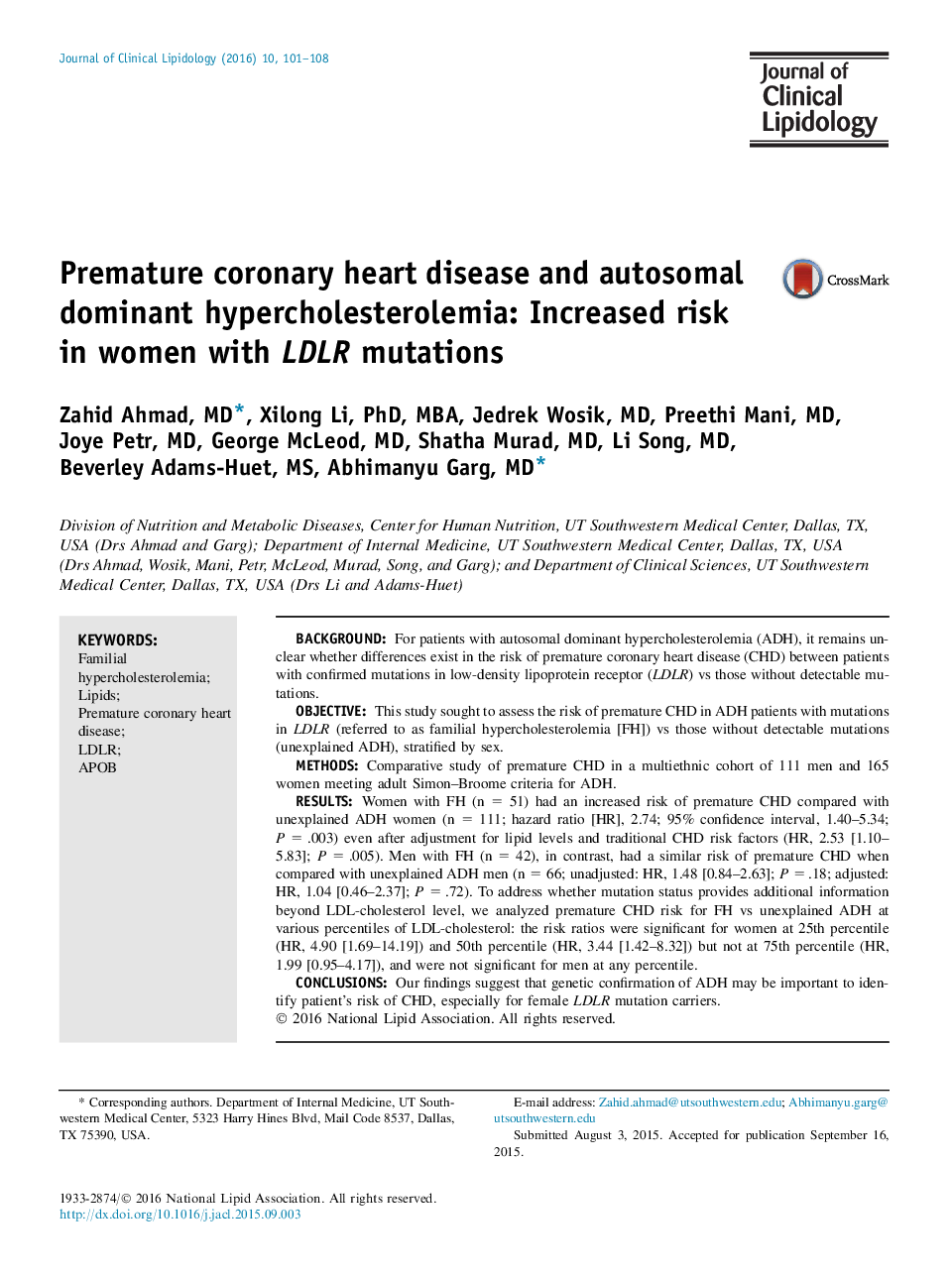| Article ID | Journal | Published Year | Pages | File Type |
|---|---|---|---|---|
| 5985181 | Journal of Clinical Lipidology | 2016 | 11 Pages |
â¢Autosomal dominant hypercholesterolemia (ADH) patients have elevated cholesterol.â¢Autosomal dominant hypercholesterolemia results in an increased risk of premature coronary heart disease (CHD).â¢We tested whether mutation status and gender influence CHD risk.â¢Female LDLR mutation carriers had a higher risk of CHD than nonmutation carriers.
BackgroundFor patients with autosomal dominant hypercholesterolemia (ADH), it remains unclear whether differences exist in the risk of premature coronary heart disease (CHD) between patients with confirmed mutations in low-density lipoprotein receptor (LDLR) vs those without detectable mutations.ObjectiveThis study sought to assess the risk of premature CHD in ADH patients with mutations in LDLR (referred to as familial hypercholesterolemia [FH]) vs those without detectable mutations (unexplained ADH), stratified by sex.MethodsComparative study of premature CHD in a multiethnic cohort of 111 men and 165 women meeting adult Simon-Broome criteria for ADH.ResultsWomen with FH (n = 51) had an increased risk of premature CHD compared with unexplained ADH women (n = 111; hazard ratio [HR], 2.74; 95% confidence interval, 1.40-5.34; P = .003) even after adjustment for lipid levels and traditional CHD risk factors (HR, 2.53 [1.10-5.83]; P = .005). Men with FH (n = 42), in contrast, had a similar risk of premature CHD when compared with unexplained ADH men (n = 66; unadjusted: HR, 1.48 [0.84-2.63]; P = .18; adjusted: HR, 1.04 [0.46-2.37]; P = .72). To address whether mutation status provides additional information beyond LDL-cholesterol level, we analyzed premature CHD risk for FH vs unexplained ADH at various percentiles of LDL-cholesterol: the risk ratios were significant for women at 25th percentile (HR, 4.90 [1.69-14.19]) and 50th percentile (HR, 3.44 [1.42-8.32]) but not at 75th percentile (HR, 1.99 [0.95-4.17]), and were not significant for men at any percentile.ConclusionsOur findings suggest that genetic confirmation of ADH may be important to identify patient's risk of CHD, especially for female LDLR mutation carriers.
